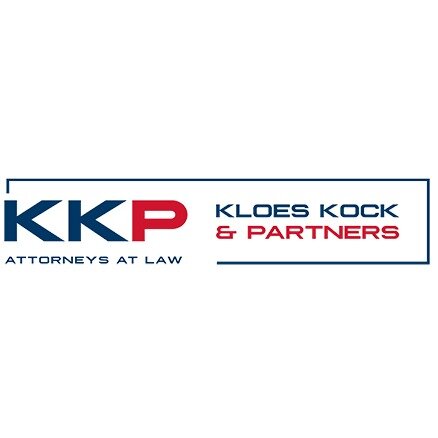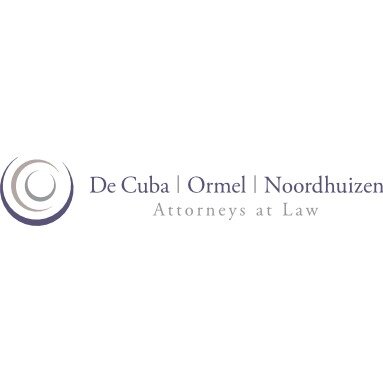Best Renewable & Alternative Energy Lawyers in Oranjestad
Share your needs with us, get contacted by law firms.
Free. Takes 2 min.
List of the best lawyers in Oranjestad, Aruba
About Renewable & Alternative Energy Law in Oranjestad, Aruba
Oranjestad, Aruba, is working toward a sustainable future by promoting renewable and alternative energy sources. With abundant sunshine and favorable trade winds, the island is well-positioned to harness solar and wind energy. The local government's commitment towards achieving a greener energy mix has led to various incentives and regulations designed to encourage investment in renewable technologies. Laws and policies in the area are geared towards increasing energy efficiency, reducing carbon emissions, and supporting innovation in the energy sector. Understanding the legal framework around renewable and alternative energy is essential for businesses, homeowners, and investors interested in contributing to Aruba's energy transformation.
Why You May Need a Lawyer
Engaging in renewable and alternative energy projects in Oranjestad involves navigating a complex legal landscape. Here are some common situations where legal assistance can be crucial:
- Obtaining permits and licenses for installing solar panels, wind turbines, or other renewable energy systems
- Negotiating and drafting contracts for equipment supply, maintenance, and service agreements
- Advising on compliance with local zoning, environmental, and building regulations
- Assisting with applications for government incentives and subsidies
- Addressing disputes with suppliers, contractors, or government agencies
- Guiding joint ventures, partnerships, or mergers within the energy sector
- Intellectual property issues for new technologies
- Advising on grid connection and power purchase agreements
A knowledgeable lawyer ensures your project is legally compliant and protected from potential legal issues that could cause delays or financial loss.
Local Laws Overview
In Oranjestad, Aruba, renewable and alternative energy is regulated through a combination of national legislation and local ordinances. Key legal aspects include:
- Permitting and Licensing - Many renewable energy projects require specific permits from the utility authority or environmental agencies. Projects may need to demonstrate minimal environmental impact and compliance with building codes.
- Net Metering - Aruba has taken steps to allow residents and businesses to feed excess energy generated from renewables, such as solar or wind, back into the national grid, subject to certain regulatory requirements.
- Incentives and Subsidies - There are financial incentives to encourage the installation of renewable energy systems. These may include tax benefits or grants, particularly for systems serving residential or commercial properties.
- Foreign Investment Rules - For foreign companies seeking to establish energy projects, there are regulations regarding ownership, land use, and financial transactions that must be carefully navigated.
- Environmental Compliance - Projects must adhere to local environmental protection regulations and may need an environmental impact assessment, especially for large-scale developments.
- Grid Access and Power Purchase Agreements - Connecting renewable energy systems to the national power grid requires compliance with technical and contractual requirements set by the local utility provider, WEB Aruba N.V.
Due to evolving policies and regulatory frameworks, it is important to seek up-to-date legal guidance before starting a renewable or alternative energy project.
Frequently Asked Questions
What types of renewable energy are most commonly used in Oranjestad?
Solar and wind energy are the most prevalent renewable sources in Oranjestad, thanks to the island's climatic conditions. There are also initiatives to explore bioenergy and ocean energy.
Do I need a permit to install solar panels on my home or business?
Yes, most solar panel installations require a permit from local authorities to ensure compliance with building codes, safety requirements, and grid connection standards.
Can I sell excess electricity generated from my renewable system back to the grid?
Aruba has established net metering rules that allow qualified producers to feed excess renewable energy into the grid, subject to compliance with utility requirements.
Are there government incentives for renewable energy installations?
Yes, there are incentives such as subsidies and tax credits for both residential and commercial renewable energy systems. The availability and terms can vary, so it is important to verify current offerings.
How are land use and zoning issues handled for renewable energy projects?
Land use for renewable energy projects is regulated by local zoning ordinances. Legal approvals are required, especially for large installations or those outside designated development zones.
What are the key environmental requirements for energy projects?
Projects must comply with environmental protection laws, which may require submitting environmental impact assessments and receiving approval from environmental agencies.
Is foreign investment allowed in Aruba’s renewable energy sector?
Yes, foreign investment is encouraged, but it is subject to specific regulations concerning ownership, local partnership, and financial procedures.
Who is responsible for regulating the energy sector in Aruba?
The main regulator is WEB Aruba N.V., along with governmental departments responsible for energy policy, environmental protection, and economic affairs.
Can renewable energy systems be used in off-grid locations?
Yes, renewable systems such as solar and wind can be used for off-grid locations, provided they meet technical and safety standards set by local authorities.
Should I consult a lawyer before signing a contract with an energy equipment supplier?
Yes, consulting a lawyer is recommended to ensure your contract protects your interests and meets all legal requirements, especially regarding warranties, liabilities, and regulatory compliance.
Additional Resources
For further information or support regarding renewable and alternative energy in Oranjestad, consider reaching out to:
- WEB Aruba N.V. - The national water and energy utility provider, responsible for grid operations, tariffs, and connections
- Department of Economic Affairs, Commerce and Industry (DEACI) - Provides information on business opportunities, investment, and government incentives
- Aruba Department of Environment - Oversees environmental compliance and impact assessments
- Chamber of Commerce Aruba - Offers guidance for companies wishing to enter the renewable energy sector
- Sustainable Aruba Initiative (SAI) - Promotes sustainable development and renewable energy education
- Certified legal professionals and law firms in Aruba - Specialized legal assistance for energy and environmental matters
Next Steps
If you are considering a renewable or alternative energy project in Oranjestad, Aruba, it is wise to take the following steps:
- Research current laws and incentive programs relevant to your project
- Consult local authorities and relevant organizations for permits, licensing, and regulatory requirements
- Engage a lawyer specializing in renewable and alternative energy law in Aruba to review contracts, advise on compliance, and represent your interests
- Plan your project timeline to account for any legal or regulatory approvals required
- Stay informed about ongoing changes in policies or incentives that may affect your project
Legal guidance can help prevent costly mistakes and ensure your involvement in Aruba's renewable and alternative energy sector is both successful and compliant.
Lawzana helps you find the best lawyers and law firms in Oranjestad through a curated and pre-screened list of qualified legal professionals. Our platform offers rankings and detailed profiles of attorneys and law firms, allowing you to compare based on practice areas, including Renewable & Alternative Energy, experience, and client feedback.
Each profile includes a description of the firm's areas of practice, client reviews, team members and partners, year of establishment, spoken languages, office locations, contact information, social media presence, and any published articles or resources. Most firms on our platform speak English and are experienced in both local and international legal matters.
Get a quote from top-rated law firms in Oranjestad, Aruba — quickly, securely, and without unnecessary hassle.
Disclaimer:
The information provided on this page is for general informational purposes only and does not constitute legal advice. While we strive to ensure the accuracy and relevance of the content, legal information may change over time, and interpretations of the law can vary. You should always consult with a qualified legal professional for advice specific to your situation.
We disclaim all liability for actions taken or not taken based on the content of this page. If you believe any information is incorrect or outdated, please contact us, and we will review and update it where appropriate.











